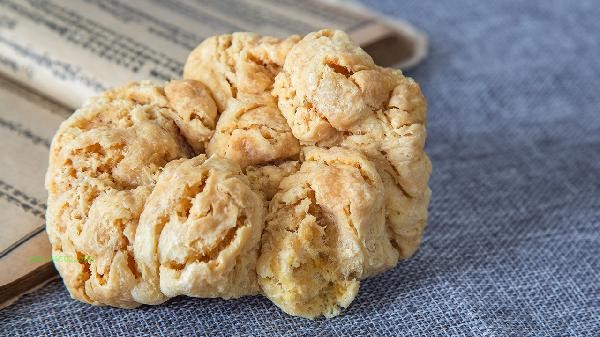Pregnant women can eat chestnuts in moderation, but they should be careful to avoid consuming them on an empty stomach, excessive consumption, spoiled chestnuts, high sugar cooking methods, and allergic reactions. Chestnuts contain protein, vitamins, and minerals that help supplement nutrition during pregnancy.

1. Fasting consumption of
Chestnuts is rich in starch and dietary fiber, which may stimulate the gastrointestinal mucosa and cause discomfort such as bloating and acid reflux. Pregnant women have weaker gastrointestinal function. It is recommended to consume other foods in combination, such as protein foods like milk and eggs, to reduce digestive burden.
2. Overconsumption of
Chestnuts has a high calorie content, and excessive consumption may lead to rapid weight gain or blood sugar fluctuations. It is recommended to control within 10 capsules per day, especially for patients with diabetes during pregnancy. Excessive intake of tannic acid in chestnuts may also affect iron absorption.
3. Rotten Chestnuts
Moldy chestnuts may contain harmful substances such as aflatoxin, which can cause food poisoning if ingested by mistake. When selecting, choose chestnuts with intact shells and no black spots, and keep them dry and ventilated during storage. Thoroughly cook before consumption to avoid residual parasites or bacteria.

4. High sugar cooking methods
Sugar fried chestnuts or candied chestnuts have a high sugar content, which can easily lead to elevated blood sugar levels. It is recommended to choose low sugar cooking methods such as boiling and steaming to preserve more nutrients. The ability to metabolize sugar during pregnancy decreases, and it is necessary to control the intake of added sugar.
5. Allergic reactions
A small number of pregnant women may be allergic to chestnuts, manifested as symptoms such as skin itching and oral swelling. The first consumption should be attempted in small amounts and observed for 24 hours without any reaction before normal consumption. Pregnant women with a history of nut allergies should consult a doctor before deciding whether to consume it.

When pregnant women consume chestnuts, it is recommended to choose fresh seasonal products and wash them thoroughly before cooking. Chestnuts can be used as a snack between meals, paired with fruits or yogurt to balance nutrition. If indigestion occurs, drinking tangerine peel water can relieve it. If discomfort persists, seek medical attention. Under the premise of reasonable intake control, chestnuts can provide nutrients such as potassium and folate for pregnancy, assisting in the development of the fetal nervous system.




Comments (0)
Leave a Comment
No comments yet
Be the first to share your thoughts!